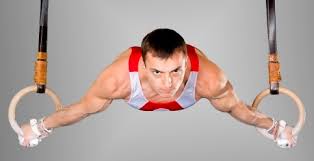BE TOUGH
You invest a lot into your sport. Mental toughness is the ability to execute whatever you want to get done right now. The core concepts below do not contain new information. You already have the tools and information. The descriptions of these concepts simply attempt to help you put the pieces of the puzzle together. A primary coach's goal? To maximize the return on competitors' investment of time, passion, and probably plenty of money, too.

Focus – Do you clutter your mind with too much thinking while you’re trying to perform? Focusing on the task-at-hand is a vital performance skill that can be learned with quality practice. To focus, you must block out regrets about the past and worries about the future, recognize the correct present-tense object for your focus, and find that “trust mode” that allows your potential to come out in your performance.
Positive Self-Talk – Self-Talk is not optional…you’re going to think and the quality of your thoughts is going to determine the quality of your attitudes. Are your thoughts helping you excel or holding you back?
Both. This is where the rubber meets the road, and everyone has some good and some bad habits. Identify the good ones so you can do them again and identify the bad patterns so you can make an adjustment. It is exciting to think of what you can achieve. Your potential is absolutely astounding. Training your brain to move towards the things you want and to stay positive in the face of challenges will allow you to fulfill that potential.
Confidence/Trust – Is there anything more important for you to perform at your best than trust? Trust is simply the combination of focus and confidence. Great athletes consciously control their confidence level. They don’t lose confidence after mistakes and they do gain it after successes. Their self-talk has a consistently Optimistic Explanatory Style that is always honest, but emphasizes positives and de-emphasizes negatives. There are two sides to every coin and both are true. The question is: which point of view is a more useful side to focus on?
Self-Control – You must first control yourself if you are going to control your performance. You have little to no control of what goes on around you, but total control of how you respond. Learn to recognize your "red light" and "green light" signals. The goal is get yourself into your ideal state when it is time to practice and perform. Your internal state is comprised of your attitude and your physiology. It is useful to have multiple routines for getting you on track, both before and during competition. Your sport will provide adversity. No one stays in their ideal state all of the time, but consistent competitors come closer.
Perspective – Anyone who's ever "choked," meaning that they played below their potential when they perceived that it was a particularly important situation, should realize this: a performance/self-concept link is extremely damaging to the quality of a performance. Worry is counterproductive because it prevents the athlete from being in the moment and often turns attention towards uncontrollables. If you're worried what others will think of you, you're going to be partially distracted from the task-at-hand. Training in this area will clarify for you the perspectives that allow for the greatest performances. There is plenty of evidence to support the truth of these beliefs. Ultimately, your perspective on performance is your choice, but if you are competing with less information, you may be fighting an unnecessary uphill battle.
Routines – Wouldn’t it be great if you could GUARANTEE giving your best effort every single time? You can. Not best effort ever, of course. That's not realistic. But you can control the controllables and give the best effort you possibly could give at this point in time in this situation. By using your experiences effectively, you can build routines that will make sure that you are physically and mentally at the right place at the right time. And if you define success in controllable terms (Coach Wooden: "the peace of mind that comes from knowing you did your best,") this means you can guarantee success.
Imagery - The mind/body connection is powerful, but communicating from mind to muscle can be challenging. Learn about the impact imagery has for many famous athletes and work to improve your imagery skills. Imagery is free and always available! You can use imagery before, during, and after your performances to maximize growth and winning. By running experiments (games and practices), you will figure out how and when to use imagery most effectively for you. Try these simple examples: image the color blue to calm your nerves and image a shiny, silver spring loading and then exploding to be patient and maintain good rhythm without losing explosiveness.
Goal-Setting Process – You have some big goals already. You want to prevent frustration at the distance of big challenges and prevent complacency from destinations already achieved. Certainly, you are already demonstrating goal-directed behavior often, but mounds of research indicate that writing down S.M.A.R.T. and Controllable goals will help you maintain goal-directed behavior more consistently. “The journey of a thousand miles begins with a single step.” A formal goal-setting process will also ensure that each step is headed in the right direction. It is a process rather than a one-step resolution because monitoring and adjusting goals is critical.
Courage - The great thing about being human is our potential to create "second nature." We have the power to change! Courage is the strength of will to do what is difficult. It comes in both physical and moral forms. Moral courage includes the ability to resist peer pressure, risk embarrassment, and stick to your values through adversity. It is a requirement for turning weaknesses into strengths because both identifying and working on weaknesses are painful. "Without courage," says Winston Churchill, "all other virtues lose their meaning." Courage is the most important mental skill.
For an audio lesson that discusses some of these core concepts in more detail, check out my growing library of Elite Athlete Audios. Each is under 5 minutes.
Please comment below. Does your athletic training include training your brain? Do you like my Elite Athlete Audios? If so, for what aged athlete?


